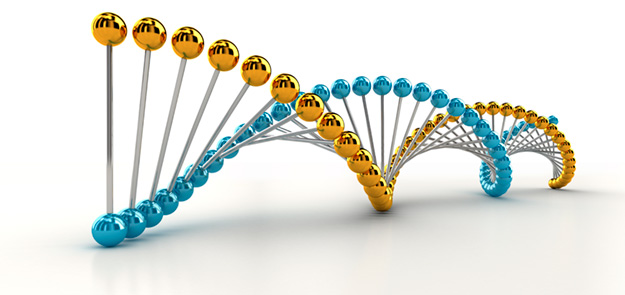 One of the responsibilities of probation officers is to collect body fluid samples from clients to test for the presence of drugs or alcohol when that is a condition of their probation. But did you also know that Indiana law requires officers to collect a DNA sample for persons convicted of a felony? The Indiana General Assembly adopted this requirement in 2005.
One of the responsibilities of probation officers is to collect body fluid samples from clients to test for the presence of drugs or alcohol when that is a condition of their probation. But did you also know that Indiana law requires officers to collect a DNA sample for persons convicted of a felony? The Indiana General Assembly adopted this requirement in 2005.
When a court sentences a defendant directly to the Department of Correction (DOC), bypassing any contact with probation, then the DOC collects the DNA sample. In other instances a defendant may be held in or sentenced to the county jail, the local community corrections agency or probation, resulting in the sheriff or the designee of the sheriff collecting the sample.
Where Samples Go
The Laboratory Division of the Indiana State Police (ISP) is the receiving agency for all samples collected. ISP works under an agreement with the Federal Bureau of Investigation (FBI) to use the Combined DNA Index System (CODIS) to enter all DNA test results from the samples submitted from local and state agencies. CODIS is programmed to ‘match’ DNA profiles. The FBI explains CODIS on their website located at www.fbi.com, which is summarized below.
The FBI describes the system as a software platform that blends forensic science and computer technology.
It has multiple levels where DNA profiles can be stored and searched at the local, state and national levels. Data stored at the national level is kept in the National DNA Index System (NDIS). At this level, an analyst can try to match a DNA profile from a local crime scene sample (described as a forensic unknown) with an offender’s profile from across the nation to solve cases that span states.
Analysts use CODIS to search DNA profiles obtained from crime scene evidence against DNA profiles from other crime scenes and from convicted offenders and arrestees in those states that collect samples from arrestees (Indiana does not allow this). CODIS can generate investigative leads in cases when a match is obtained. The FBI notes that if the DNA profile from a crime scene matches a sample taken from another crime scene, the cases may be linked in what is called a forensic hit. If the crime scene sample matches a convicted offender or arrestee sample, the result is called an offender hit. Hits give investigating officers valuable information that helps them focus their investigation.
NDIS contains over 11 million offender profiles, almost 2 million arrestee profiles and just under 600,000 forensic profiles. Ultimately, the FBI indicates that the success of the CODIS program will be measured by the crimes it helps to solve. The primary metric for CODIS, “Investigation Aided,” tracks the number of criminal investigations where CODIS has added value to the investigative process. As of August 2014, CODIS has produced just under 258,000 hits assisting in more than 246,000 investigations.
Indiana Stats
| Statistical Information | Total |
| Offender Profiles | 227,378 |
| Arrestee* | 0 |
| Forensic Profiles | 9,588 |
| NDIS Participating Labs | 5 |
| Investigations Aided | 3,464 |
*Indiana law limits DNA sampling to those convicted of felonies, not those arrested without conviction. Source for statistics: http://www.fbi.gov/about-us/lab/biometric-analysis/codis/ndis-statistics/#Indiana

Challenges Indiana Faces
ISP sends DNA testing kits to sheriff and probation departments in every county and to the DOC Prisoner Intake Division. ISP estimates that the cost incurred for the kit used for each individual collected and analyzed is around $25. The standard procedure in Indiana has been for a DNA sample to be taken from every person convicted of a felony whether they go directly to DOC, are sentenced to the county jail, or are on court ordered probation or community corrections supervision. Even in instances when it was known that a defendant had a previous felony conviction that should have warranted a DNA sample, cautious county and state officials would automatically collect a sample. This procedure has resulted in thousands of duplicate samples being taken and forwarded to the DNA lab. ISP projected that 60% of all samples sent from DOC were duplicates. The cost to test each sample is not only the price of the kit and testing but the hourly rate of the lab technician who performs the analysis and enters the results into CODIS. In an attempt to avoid duplicate tests, many probation officers contact the crime lab to determine if a sample exists for a particular client. Although this results in a cost saving on the front end, the ISP DNA Lab staff must spend time searching their records and responding to the inquiries from the county.
Using INcite to Help Solve the Problem
At the suggestion of Aaron Louden, a probation officer from Jackson County, the DNA lab contacted the Supreme Court’s Division of State Court Administration (Division) to discuss a possible solution. Mr. Louden thought that it would be helpful to track DNA results in the Offender Management System in INcite. INcite is software developed by the Division that provides a suite of discreet applications for federal, state and local court, clerk and public safety agencies. The Offender Management system is an application that ties together the Risk Assessment tools, the Presentence Investigation Reports and the Abstracts of Judgment. Probation officers, courts, jails and the DOC use this application in their daily work.

The original purpose of the electronic Abstract of Judgment application was to expedite and streamline the exchange of information between courts, jails and the DOC. Work began in 2011, and as development and testing neared completion in early 2012, the Indiana General Assembly enacted a law that required all courts to complete the Abstract in an electronic format. The Indiana Supreme Court amended Criminal Rule 15.2 requiring courts to complete an electronic Abstract for all felony convictions, not just the cases where the court sentences the defendant to DOC. On July 1, 2012, the first day the law and Rule became effective, all courts started using INcite to complete the Abstract.
The Offender Management System and the DNA database have similar goals: to compile and make available information for all individuals convicted of a felony in Indiana. To address the challenges that ISP was having with the added costs of redundant testing, the Division offered to modify the Offender Management System to incorporate a DNA indicator, or icon, on each person’s record if ISP had completed DNA testing. ISP is the only agency authorized to upload the DNA information to INcite in order to maintain data accuracy and integrity.
When the application was ready to receive and display the DNA icon, the initial ISP upload contained just over 139,000 individuals. ISP updates the data multiple times each week. Now when a probation officer or intake staff at DOC process an offender, they can check INcite to determine if DNA has already been processed for that offender. If confirmed, there is no need to collect a DNA sample.
Benefits
On June 12, 2014, the Division’s technology staff implemented several enhancements to the Offender Management System. One of these enhancements was adding the DNA icon to an offender record. Probation officers no longer need to contact ISP to ask if a client needs to be tested. All probation officers and DOC Intake staff can view the DNA icon, when available, as they prepare or process the Abstract, PSI and Sentencing information available within INcite. The impact was immediate. The number of kits used and tests conducted has been significantly reduced. Anticipated cost savings are in excess of a hundred thousand dollars in testing supplies alone. Kristine Crouch, the CODIS Administrator at the DNA lab says “every hour not spent on duplicated offender collections is an hour spent working a case that would otherwise be sitting in the backlog. The sooner we complete cases so the police agencies can make arrests, the more crimes are potentially prevented.”
For additional information on INcite please contact Mary DePrez at (317) 234-2604 or [email protected].
Photo @istock.com/YinYang. Photo @istock.com/ozeroner.